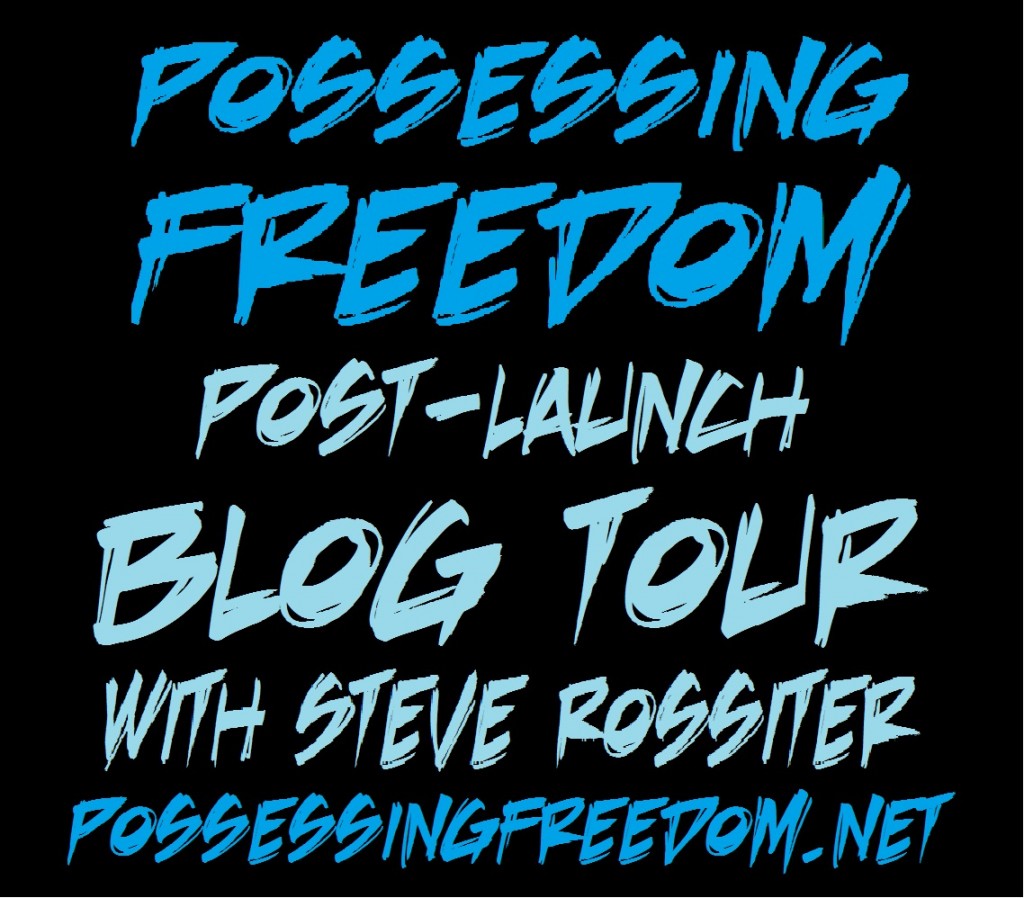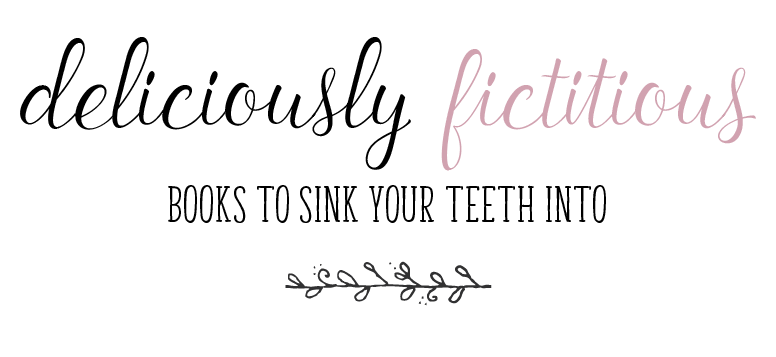 Happy Wednesday! Today it’s my stop on the blog tour for Aussie Young Adult supernatural thriller Possessing Freedom.
Happy Wednesday! Today it’s my stop on the blog tour for Aussie Young Adult supernatural thriller Possessing Freedom.
Possessing Freedom is an “integrated short story collection” or “collaborative novel”, written by Australian authors Beau Hillier, Belinda Dorio, Rhiannon Hart, and Steve Rossiter.
Steve – who runs The Australian Literature Review – also published and edited the book (and a second collaboration called The Life and Times of Chester Lewis). And he’s running a fan fiction comp worth $2,000 as part of the launch – details here!
I chatted with Steve about the collaborative process and the other projects he’s got on the boil:
Me: Is this (and Chester Lewis) the first time you have participated in a collaborative
fiction project? What made you want to be involved?
Steve: The Life and Times of Chester Lewis was started before Possessing Freedom and took longer to write, as the Chester Lewis stories were written by 11 authors sequentially whereas the Possessing Freedom stories were written by four authors simultaneously. These were the first two collaborative fiction projects I had participated in. (However, I have run a collaborative fiction competition that resulted in a winning story by Lia Weston and Emma Salkild, who wrote letters back and forth to each other in character to create the story.)
Read full answer »
Me: You have given some insight (here) into how you created your character, Damian, whose two stories interweave with Belinda Dorio’s character, Alice. But what about planning for the book as a whole? Did you know where the novel was going when you started writing Damian?
Steve: Alice was one of the first characters created, along with a character called Mark who became Alice’s brother. It was after Alice and her storyline were reasonably well developed that Damian – the hospital psych intern – was settled on as the alternating POV [point of view] character for the first four stories. My job writing the Damian stories was largely to fit in with what Belinda had written in Alice’s stories and stick to the general story direction we had discussed as a group. Although the two stories told from Damian’s POV are the second and fourth stories, I had a good idea of the whole story when I wrote them.
Me: What about the ‘rules’ of the supernatural world the novel relates? How did you and the other authors work these things out?
Steve: The setting, how the supernatural element worked, and the overall character dynamics and story direction were arrived at collaboratively through group discussions, and refined through rough drafts and more discussion.
Me: How did the colloboration affect the writing process? How did it differ from the process of writing standalone short fiction, or a traditional (single author) novel?
Steve: Since I already had Belinda’s stories to work with, the actual writing process for me personally was one where I could write straight through without negotiating potential conflicts with stories-in-progress. It was up to me to make sure I stayed consistent with Belinda’s stories and the stories which followed.
Read full answer »
Me: Possessing Freedom is told from the point of view of several different characters. How difficult did this make it to tie up loose ends left by earlier characters, or maintain the consistency of characterisation/’voice’ of earlier characters? How did you (individually and as a group) tackle this problem?
Steve: Belinda and Beau’s process was much more centered around swapping rough drafts regularly and discussing ideas back and forth during the writing process. Big picture storylines and character relationships were developed through group discussion. The personality and ‘voice’ of each character was mostly developed by writing draft scenes from each character’s POV.
In turn, these draft scenes would bring up further ideas for refining storylines and character relationships. New drafts would establish more and trigger further refinements. This process continued over eight fortnightly meetings and via online discussion. Beau would write up character profiles and make graphs of character relationships and I would draw diagrams of plot progressions and which story went where.
When Rhiannon joined the group, she met with us to build up an outline of who her Emma character would be and how the Emma stories would fit into the bigger picture. Rhiannon’s stories interweave with Beau’s, so he worked with her to maintain consistency in relation to his Mark character. Her writing task, much like mine, was to fit her stories around those already in place.
Each writer was encouraged to start out writing what came to them within the general parameters of our discussions, to get stories drafted, then to iron out inconsistencies and refine details.
Read full answer »
Me: What benefits do you think the process of collaborative writing has to offer writers? What about readers? Can they get something extra/different from reading a collaborative novel?
Steve: Collaborative writing encourages writers to discuss story elements such as plot, theme, characters, setting, intended readership, and how to express the story. Writers can also identify strengths in one another’s writing and ask questions which help identify areas where a writer’s intentions are not coming across clearly to readers.
Read full answer »
Me: How has the rise of the internet impacted on the way we traditionally tell stories? Have this affected the way you approached writing and publishing Possessing Freedom?
Steve: In most cases, written fiction is told in much the same ways it has commonly been told for hundreds of years. More commonly, authors and publishers use the internet to publicise their work, and to connect with readers, others in the publishing industry, and info on writing and publishing.
Read full answer »
Me: Possessing Freedom is a supernatural YA novel set in the year 2026. Are there certain elements that should always remain realistic regardless of how fantastical the story is?
Steve: The question of what should or should not be realistic depends on the story. Personally, it is the realistic parts which I like about stories. For example, in novels like Harry Potter or The Hunger Games I like Harry’s friendships with Hermione and Ron or Katniss’s determination to survive and make it home to protect her sister, and these things are much more important to me than the spectacle of magic spells or how technology works in a fictional future.
Me: You edit and publish The Australian Literature Review and have edited and participated as an author in a number of short fiction compilations. How did you first get involved in the literary world and what constitutes ‘great literature’ for you?
Steve: After five years of studying subject areas like writing, film, literature and communications at university, I was doing a little blogging to try out a few different blogging platforms. I had been interviewing storytellers such as screenwriters, film directors and fiction writers when I searched for interviews with Australian novelists to pick someone I’d like to interview. I discovered that there wasn’t much like the kind of site I was hoping to find, so I created it myself.
About a month later, I launched the site with a short story competition that had $800 in prizes and free entry, some author interviews and some articles on the craft of fiction. The site grew from there as I continued with interviews and articles, put up short stories from competitions, covered the World Science Fiction Convention in Melbourne a few months later, and, a few months after that, began a tour around Australia that went for all of 2011, meeting authors and going to book events while running the site from a laptop.
Great literature for me is an original story which explores human behaviour with intelligence and clarity, while also being entertaining.
Going back to the point about realism, it’s what’s realistic that I find most satisfying when experiencing a story – even if the story also has a strong element of unreality. If a story has a lot of mythology, symbolism and attempts to rhetorically position readers, without some firm element of reality in the personalities and behaviour of the characters, there probably wouldn’t be much I would appreciate about that story.
Read full answer »
Me: You’re writing your debut novel about a teenager in 1939 Poland. What elements of your experience in writing short fiction would you say have been most useful in this process? Are there any ‘short fiction’ habits you’ve had to deliberately avoid?
Steve: While I have not written my own novel for publication, whereas I have written a number of short stories for publication, I have more experience dealing with longer-form stories such as novels, feature films, feature film screenplays, and stage plays than I do with short fiction (although I have read a lot of short fiction in the past two years and four months since The Australian Literature Review went online).
My aim is for this novel to be both entertaining for teen readers and a serious historical novel for adult readers. In developing the story (including elements such as setting, characters, plot and theme), as opposed to style of written expression used to articulate the story, I will probably draw from areas like my experience of stories for film, TV and theatre, and from my experience of wider human behaviour and storytelling, as much as I will from novels and short stories.
I will also be working with upwards of 100 novelists from around the world throughout 2013 in relation to articles about their novel writing for Writing Historical Novels (a website launching Jan 1st), Writing Teen Novels (expanding from Jan 1st) and Writing Novels in Australia (a site relaunching with a new group of novelists from Jan 1st), so I will be increasingly surrounded by a diverse range of novelists and analysis of various aspects of novel writing on a day-to-day basis as I write my novel.
Read full answer »
You can buy Possessing Freedom here, read other interviews from the tour here, or enter the fan fiction competition (1st prize: $2,000!) right here.
Till next time!
~DF

Pingback: Post-Launch Blog Tour with Steve Rossiter | Possessing Freedom